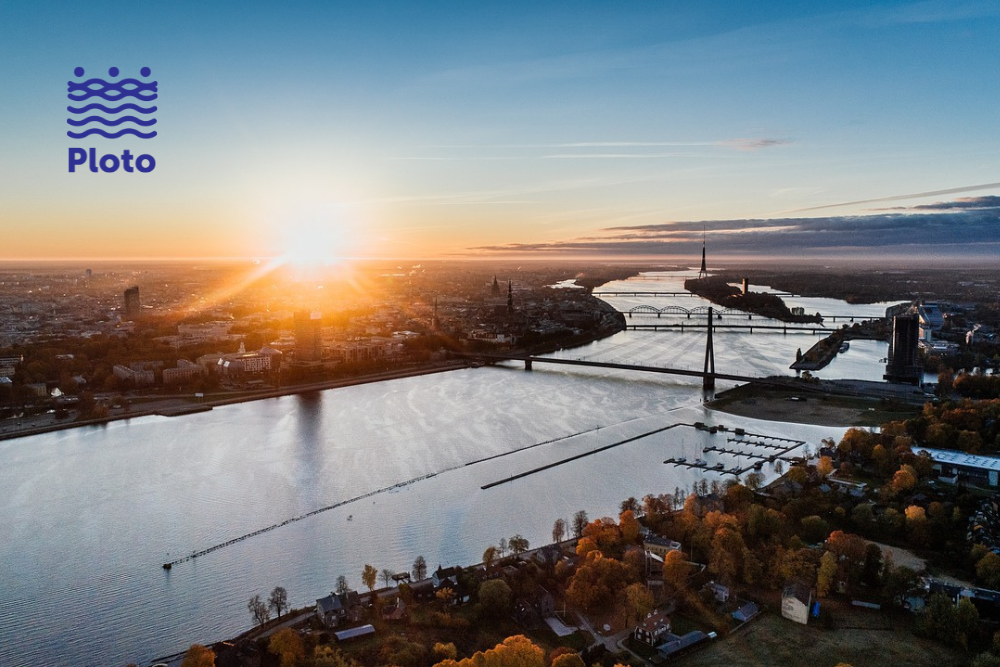In the European Union, a vast network of approximately 41,000 kilometres of inland waterways winds through 25 Member States. This intricate crisscross of water routes is a lifeline for many and is especially vital in densely populated and congested regions, where traditional transport modes face limitations. A dedicated workforce of approximately 44,000 individuals operates inland vessels in the EU, with 60% engaged in goods transport and the remaining 40% involved in passenger services. Every year, an impressive cargo load of about 150 billion ton-kilometres is transported via Europe’s inland waterways.
The increasing negative impacts of climate change, including more frequent occurrences of floods and droughts, are now a significant concern for the effective operation of Europe’s inland waterways. These changes in weather patterns pose a direct threat that could result in significant human and economic losses. The PLOTO project is dedicated to ensuring reliable network availability under unfavourable conditions, such as extreme weather, accidents, and other kinds of hazards, thereby increasing the resilience of inland waterways infrastructures and the connected land infrastructures.
EU’s Commitment to Inland Waterways
Recognising the immense potential of these waterways, in June 2021, the European Commission unveiled an ambitious 35-point action plan, aiming to elevate the significance of inland waterway transport within existing mobility and logistics systems. The primary objective is twofold: to redirect more cargo onto Europe’s rivers and canals and to facilitate the transition to zero-emission barges by 2050. This aligns perfectly with the European Green Deal and the Sustainable and Smart Mobility Strategy, both of which share the goal of increasing inland waterway and short-sea shipping by 25% by 2030 and an even more ambitious 50% by 2050.
Among these initiatives are the revision of the Combined Transport Directive and the support for investments in trans-shipment capacity and inland multimodal terminals, enabling the seamless integration of inland waterways into a modern, trans-European intermodal transport system. The impending revision of the Combined Transport Directive will treat inland waterways as a pivotal component of intermodal transport. Moreover, the Commission will establish a comprehensive EU framework for measuring and reporting emissions from logistics and transport, potentially bolstering the demand for more sustainable options, including inland waterways, wherever feasible.
Within this framework, the Commission has allocated funding to PLOTO to enhance the resilience of Inland Waterways (IWW) infrastructures and their associated land infrastructures. Over 42 months, the project will work to capitalise on the European Union’s comprehensive action plan designed to lay the groundwork for the inland waterway transport sector.
Embracing innovation and digitalisation of IWW infrastructures
Inland waterway transport boasts several inherent advantages, such as energy efficiency, safety, minimal congestion, and noise reduction when compared to other land-based modes of transport. Moreover, enhanced digitalisation expected to play a significant role in improving navigation and traffic management efficiency, better integrating inland waterway transport into logistics processes and multimodal chains, and reducing the administrative burden and costs associated with regulatory compliance and enforcement.
The PLOTO project is taking the lead in advancing IWW’s technological developments by operating, testing, and demonstrating them at three pilot sites located in Belgium, Romania, and Hungary. The collaboration between more than 20 European partners has the primary objective of developing a platform that will enable multifaceted hazard assessment and optimisation of operational and strategic decision-making processes for the management and maintenance of inland waterways. In fact, the project enhances the potential of inland waterways to play a central role in decarbonising the European transport systems.
As PLOTO marks its first anniversary since its launch in September 2022, it remains steadfast in its commitment to advancing both IWW methodology and technology, bolstered by the invaluable support of experts in its three living labs in Europe.




